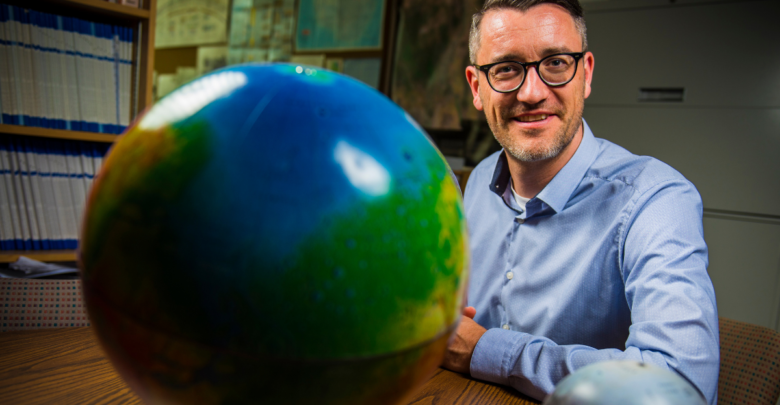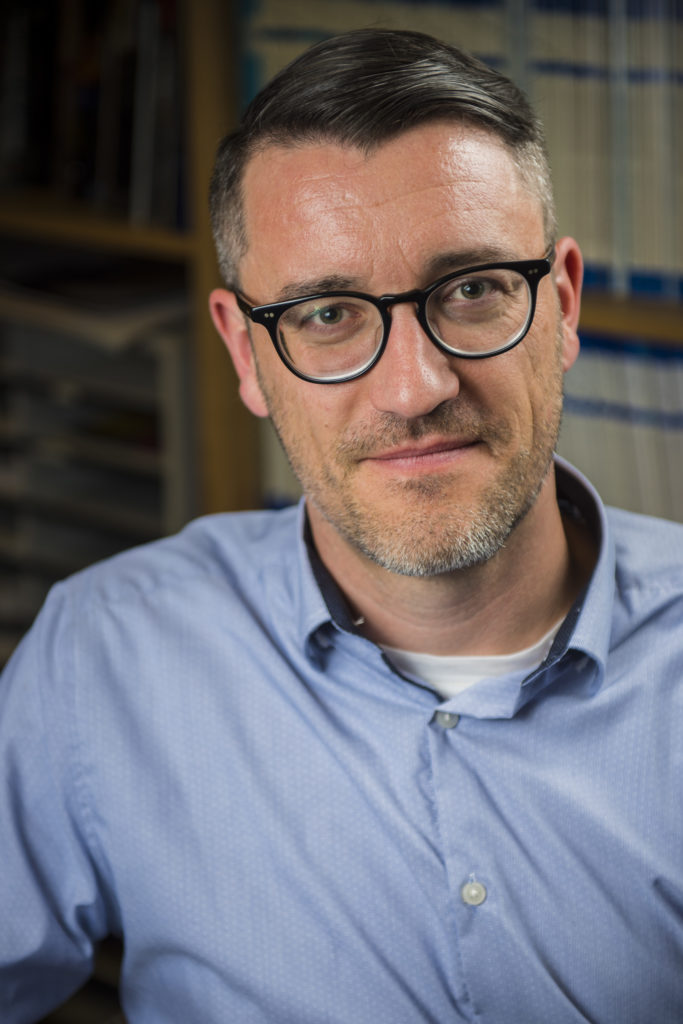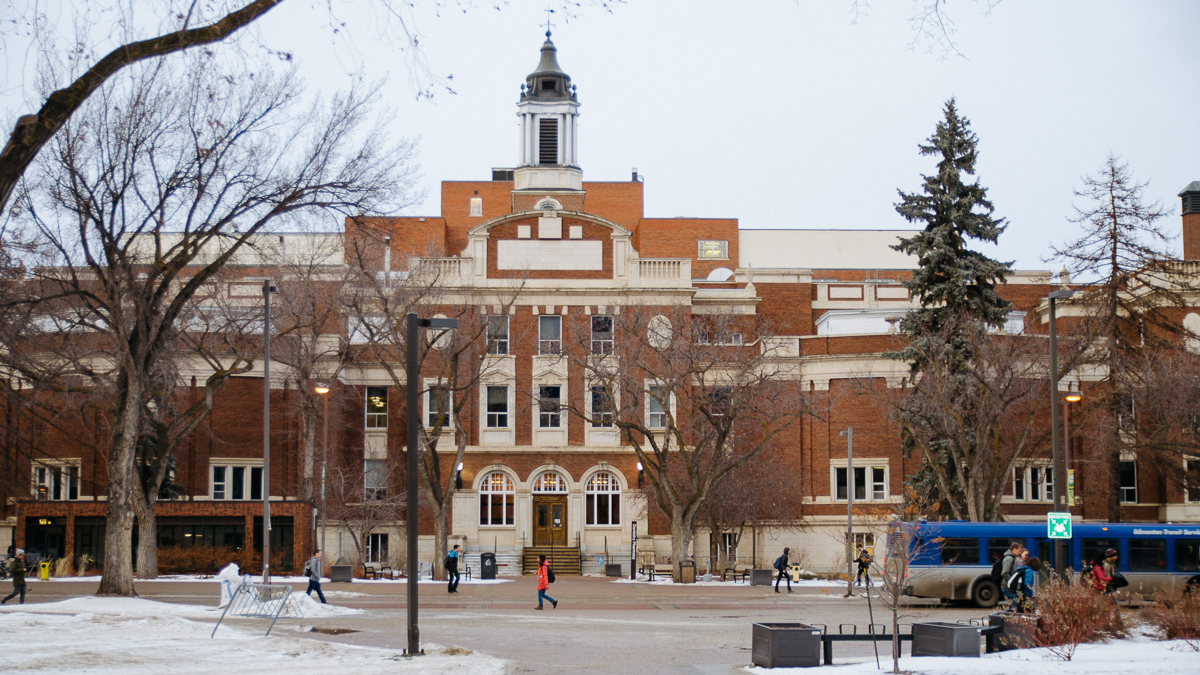 U of A Faculty of Science
U of A Faculty of ScienceUniversity of Alberta professor Chris Herd is playing a vital role in the latest NASA Mars mission — the first venture to collect samples from the red planet for a potential return to Earth.
Herd is a professor in the department of earth and atmospheric sciences, while also fulfilling the role of a NASA returned sample scientist on the Mars 2020 Perseverance Rover mission. He will be involved with the collection and caching of Martian rock core and dust samples, and their analysis once they are sent back to Earth.
Herd’s passion for geology began at a young age, and was heavily influenced by his father.
“My father’s a retired geologist who was the curator of the National Collection of Rocks, Minerals and Meteorites in Ottawa, so I grew up around rocks,” Herd explained. “On family driving trips we would have the roadside geology of this or that state, if we were in the states. My father… he just has this excitement with anything to do with space and rocks and meteorites, and we feed off each other when we talk about it.”
Herd’s mother also played a part in his journey towards becoming a scientist, by drawing his attention towards Mars.
“I’d been fascinated by Mars since I was about 12 or 13 by reading science-fiction books my mom helped me find because she’s a retired librarian,” Herd described. “At that point I said I really want to study rocks that come back from Mars.”
Herd described himself as being fortunate to have the support allowing him to reach his goals. However, the path to becoming a sample scientist for NASA had a few challenges along the way.
“Some of the biggest challenges, of course, have been doing things like finishing a PhD,” Herd admitted “Those last few months of that PhD — wow that was hard.. Not knowing where I was going to go next [after my PhD], at the same time as I was trying to finish [it].”
Though faced with challenges, Herd relied on the support of his PhD supervisor to help him accomplish his goals and grow as a scientist.
“My PhD supervisor… Jim Papike at the University of New Mexico, he was phenomenal,” Herd described. “He gave me just enough freedom to sort of screw up — to then learn from those mistakes and be successful. That’s someone you can really look up to.”

When reflecting on his career, Herd described many of the opportunities besides NASA that were beyond his wildest dreams. This includes working with the Royal Ontario Museum to buy the Tagish Lake meteorite, which Herd described as having unique properties.
“The Tagish Lake meteorite — it’s completely unique and special and has to be kept frozen and everything to curate it,” Herd excitedly explained. “If you had told me when I was in grad school, that I would be involved in something like that, I’d have thought you were crazy! That’s nuts — why would you let me touch something like that?”
Moving forward, Herd identified his current career goal to be Mars, the red planet.
“Mars is the goal,” Herd emphasized. “For me, it always has been. I definitely want to be involved in looking at those samples, especially the ones that I helped collect with the rover.”
“You know I’m going to have my favourites, right.” Herd joked. “There will be two or three [samples] in particular, or maybe just one… that I definitely want to study.”
When looking at the future of space exploration, Herd emphasized the importance sample collection has in the process.
“This is the era — the space-age started with sending probes out into the solar system, but also sending humans to the moon and those humans brought samples back, “ Herd explained. “Sample return has always been in parallel with exploration. It’s all about the samples, and what we can do with the samples that come back from these places in the solar system in the future.”




